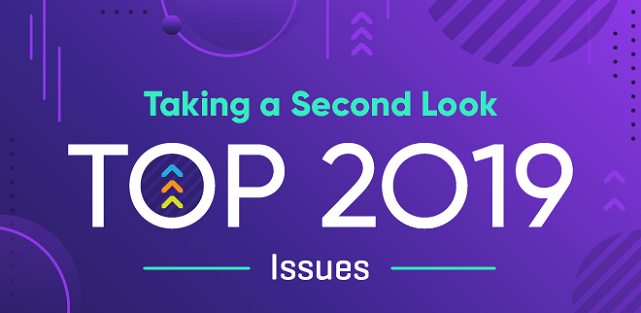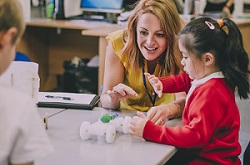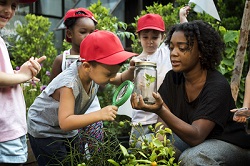Next Gen Navigator
Taking a Second Look: Top 2019 Issues
Posted on 2020-04-30
Disclaimer: The views expressed in this blog post are those of the author(s) and do not necessarily reflect the official position of the National Science Teaching Association (NSTA).

Best of 2019
Every month, the Next Gen Navigator captures educator voices sharing intimate insight into how science learning across the country is shifting toward the vision of the Next Generation Science Standards (NGSS) and other three-dimensional state standards based on A Framework for K-12 Science Education. In these times when rapid adjustments to the changing settings of science learning are required, we need to continue to advocate for centering science teaching on student sensemaking. By reflecting on the progress we have made collectively on our “three-dimensional journeys,” we will be better equipped to support science learning now and moving forward. In this issue of Next Gen Navigator, I’ll share a few of my favorite issues of the Navigator from 2019 that I believe capture inspiring snapshots of three-dimensional standards in action for the individual learner, the learning community, and the learning ecosystem. Each of these Navigator issues have resonated with my practice as a science teacher. I hope they resonate for you, too.
In revisiting the July issue, themed “Eliciting Student Ideas in Science,” I’m struck by the expertise and confidence required by each teacher in supporting students to truly be the drivers of their learning in classroom settings. And I’m also moved by each teacher’s commitment to student voice and agency, reminded of how this shared commitment has spurred three-dimensional educators across the country to find creative new ways to support student sensemaking from home during school closures.
Rereading the June issue, themed “Building a Classroom Community for NGSS Success,” I’m reminded sensemaking is by nature not only a collaborative process, but also can be a foundation for connection and relationships. I recall resources that support home learning, inviting families to notice, wonder, and “figure out” together. I also consider the efforts teachers nationwide to maintain distant class communities and connections for students impacted by school closures.
Finally, the October issue, themed “Refashioning Informal Education to Support 3-D Learning,” is a helpful reminder for a classroom teacher like me that science learning has never ended at the classroom door. The theme also serves as motivation to find and use existing assets in our communities that could help support the development of students’ interests and identities as science learners, in our classrooms and beyond.

Will Reed
Next Gen Navigator Guest Editor
Will Reed is a high school STEM teacher at Gwendolyn Brooks College Preparatory Academy in Chicago. He has also contributed to curriculum development for organizations such as nextgenstorylines.org, inquiryHub, and OpenSciEd. He has taught math, physical sciences, life sciences, Earth and space sciences, and engineering at various levels from fifth grade to college, and has facilitated science teacher professional development for preK–12 teachers for Chicago Public Schools, the Illinois State Board of Education, and NSTA. As a Fulbright Distinguished Teacher, Reed spent the first half of 2019 living in the Netherlands, learning from Dutch STEM educators. He believes all students deserve access to meaningful, joy-filled science education, and that professional communities of science educators are key to making this possible. Find him on Twitter @WmGReed.

Building a Classroom Community for NGSS Success (June 2019 Issue)
- Building Classroom Community in an NGSS-Aligned Elementary Science Classroom by Gretchen Brinz
- Under Indefinite Construction: Creating an NGSS-Friendly Classroom Community by Megan Elmore
- Three Strategies for Building Classroom Community by Nicole Vick

Eliciting Student Ideas in Science Success (July 2019 Issue)
- Helping Students Take Control of Their Learning by Cindy Abel
- Modeling How Students Can Share Ideas and Make Sense of Phenomena by Aaron Mueller
- A Physics Teaching Approach That Supports Real-World Science by Matt Holsten

Refashioning Informal Education to Support 3-D Learning (October 2019 Issue)
- Helping Educators Develop Young Ocean Problem-Solvers by Corrine Steever
- Partnering for Maximum Impact by Angela Damery
- DIY Universe: Empowering OST Organizations and All Educators to Use NASA’s Universe of Learning Resources by Irene Porro
- It Takes More Than Teacher Professional Development: Building Systems-Level Capacity for NGSS Implementation by Vanessa Lujan
NGSS Professional Learning old Middle School Elementary High School


